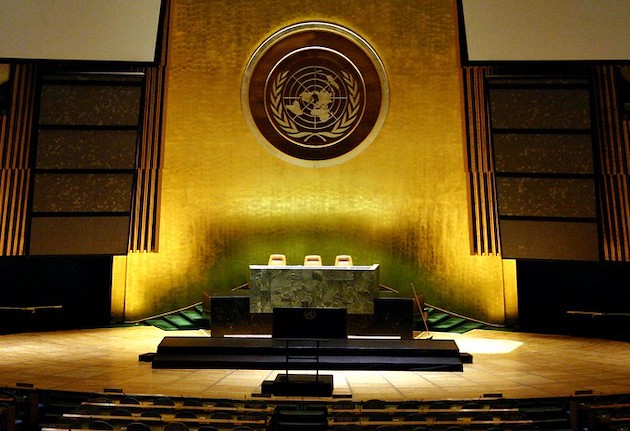The importance of Wednesday’s vote reflects the urgency of addressing the unfairness and inefficiency of the current system of corporate and wealth taxation. It is also a clarion call for the world to use multilateral principles to reach multilateral solutions. Success would demonstrate that the world can forge a different and better multilateralism – truly inclusive but also able to deliver fundamental reforms.
Almost a decade of multilateral negotiations on a global tax treaty at the OECD has yielded insufficient progress. The process has generated innovative ideas and a technical foundation on which to build a global tax system, but the type of solutions that the world needs remain far off. Independent research shows that the proposed treaty’s two “pillars” would generate far less than the OECD had projected.
Disappointed that the intense OECD process has yielded so little, several African countries launched an initiative to shift the issue to the UN. The African Group’s proposal quickly gained impressive support from the G77 coalition of developing countries, which has been demanding a fair say in setting global tax rules for more than two decades.
The question to be decided this week is what rich economies like the United States and the European Union will do. If they oppose a binding UN framework convention (as they have signaled they will do), they will be sending a message that they prefer the current ineffective and unfair arrangements to the possibility of reforms that would benefit their own people by stemming the revenue losses their governments currently suffer.
It would be a mistake to think of a UN convention on tax cooperation in terms of antagonisms between international institutions. The African Group proposal, and the major support it has elicited from the G77, demonstrates that many developing countries want to improve the multilateral system without leaving anyone behind. Blocking the resolution on “Promotion of Inclusive and Effective Tax Cooperation at the United Nations” would send a dangerous signal that those who most loudly tout the benefits of a rules-based international order don’t actually believe in one.
We, the members of the Independent Commission for the Reform of International Corporate Taxation (ICRICT) believe that opposition to moving forward with negotiations for a specific convention at the UN would have dire consequences for the entire international system.
It is politically unwise to dismiss such broad support for global tax negotiations. And it is simply short-sighted to squander this opportunity to curb the revenue losses that all countries (including rich countries) and their people suffer due to untamed tax abuse.
The US and EU should reconsider their stance, and back the African Group’s resolution.
This open letter is co-signed by the following ICRICT commissioners: Edmund Valpy Fitzgerald, professor emeritus of international development finance at St Antony’s College at the University of Oxford; Martín Guzmán, former minister of economy of Argentina; Kim Jacinto-Henares, former commissioner of the Bureau of Internal Revenue of the Philippines; Eva Joly, former member of the European Parliament; Ricardo Martner, former chief of the Fiscal Affairs Unit of CEPAL/ECLAC; Léonce Ndikumana, professor of economics and director of the African Development Policy Program at the Political Economy Research Institute at the University of Massachusetts Amherst; Irene Ovonji-Odida, former MP of the East African Legislative Assembly; Thomas Piketty, professor of economics at the Paris School of Economics and co-director of the World Inequality Database; Magdalena Sepúlveda, executive director of the Global Initiative for Economic, Social, and Cultural Rights; Wayne Swan, president of the Australia Labor Party and a former deputy prime minister of Australia; and Gabriel Zucman, professor of economics at the University of California, Berkeley and co-director of the EU Tax Observatory.
Original source: Project Syndicate
Image credit: Some rights reserved by Gruban, flickr creative commons

